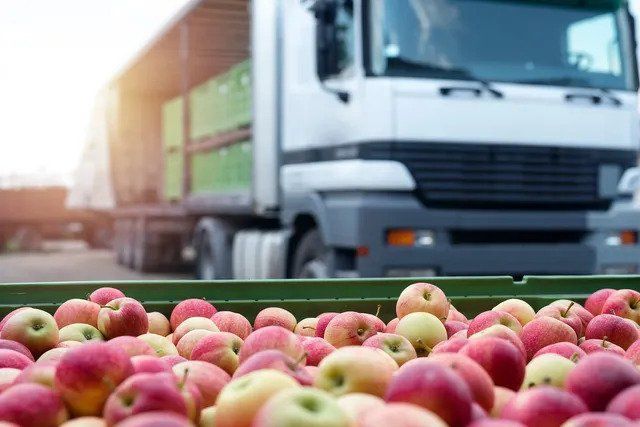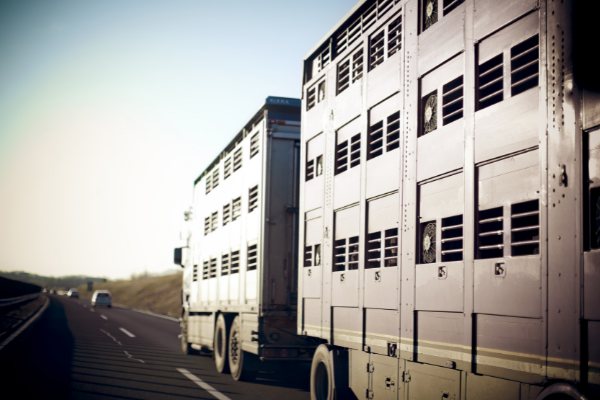BY:
SHARE:

HMRC have issued a warning about both continuous and deliberate non-compliance during the completion of cross-border documentation and Customs declarations on import into GB.
Errors happen
Errors will occur, it's a part of the process. Whether it’s adapting to new IT systems, regulatory changes, or the need for speed in border crossings, it’s all part of the human experience.
Ideally, IT systems should be intelligent enough to issue recognisable alerts where the resulting necessary actions are apparent. However, where systems and processes are new, there are margins for error and scope sufficient for users to buck the system once they have worked out how to.
Whatever the reasons for the error, it’s essential to:
- Keep the focus on compliance
- Keep errors to a minimum, and
- learn from mistakes.
Non-compliance can lead to severe consequences, such as goods being held at the border, impounded, or even destroyed, with fines imposed on those responsible for the shipments. These are not just potential risks but real outcomes of non-compliance that we must all be aware of.
Customs are drawing our attention to the fact that agents, traders, and logistics companies are making continuous errors, which are beginning to appear deliberate.
These include:
- mis-declaring goods as low risk when they are medium or as medium when they are high risk.
- not including a relevant Export Health Certificate (EHC) or Phytosanitary certificate
- including multiple EHCs on one CHED (Common Health Entry Documents)
Deliberately mis-declaring goods to a lower risk level is a criminal offence. Customs and Border Force will look for behavioural patterns and target repeat offenders. There should be no reason for mis-declaring the goods' risk category, as the risk category is linked to the goods' Defra classification.
Continued non-compliance within either the EHC or the CHED is also unacceptable, and Port Health Authorities (PHAs) are not forbearing; they cannot afford to be. Port Health Authorities will also be watching for repeated offences or patterns of behaviour that would indicate an increasing risk of non-compliance. Tolerance is not a word that will relate to PHA activity towards non-compliance.
Where repeated non-compliance or evidence of misdeclaration is present, the appropriate authority will take statutory action. This will result in goods being held at a Border Control Post (BCP) for a physical inspection, which may, in turn, ultimately lead to the consignment being returned or destroyed at a cost to the person or business responsible for the load.
Proper preparation to make a compliant declaration for controlled foodstuffs crossing the border is essential, as are the planning and robust processes that fall in the goods movement chain immediately before presentation at the border.
Links to the HMRC guidance are below, with additional links to the relevant Defra sites:
- HMRC Guidance:
importing live animals and animal products to Great Britain
Detailed instructions on the products and their risk categories can be found using the link immediately below. The information is in spreadsheet format and can be downloaded for ease of reference:
BTOM-risk-categories-EU-countries-list-by-commodity-code-19-06-2024.xlsx (live.com)
Detailed information on products for import can be found at the link below. This data is also in spreadsheet format:
The above guide provides direction on the import regulations for plants, plant produce and other objects subject to phytosanitary control.
There are six commodity groups and five categories. Each plant, plant produce, or other object is allocated to a group and then categorised in line with EU regulations (Commission Implementing Regulation (EU) 2019/2072 and Commission Implementing Regulation (EU) 2018/2019).
Wood and wood products to be imported into NI are covered here as a 7th commodity group: – A guide to importation and export of wood and wood products for Northern Ireland | Department of Agriculture, Environment and Rural Affairs (daera-ni.gov.uk)
Detailed information for commodities can be found here: BTOM (Border Target Operating Model) risk categorisations - UK Plant Health Information Portal (defra.gov.uk)
DEFRA guidance and support: business leaflets and videos
Leaflets to help businesses prepare for a new approach to importing goods to GB under the BTOM.
HMRC has published its webinars for traders at the link below in case you missed them or want to re-watch them.
Watch recordings of our previous webinars for traders.
Contact points for urgent border target operating model (BTOM) queries
Any urgent BTOM/import queries for plants and plant products across England and Wales should be directed to the Animal and Plant Health Agency (APHA) by email in the first instance: phsi-importers@apha.gov.uk
Telephone helpline: +44 (0) 3000 200 301
Any urgent BTOM/import queries for animal products should be directed to the Port Health Authority (PHA) at a nominated Border Control Post (BCP). PHA contact details for a nominated BCP can be found on this map.
If you need technical help with IPAFFS (Import of Products, Animals, Food and Feed Systems), you should call the Animal and Plant Health Agency (APHA) helpline on 0330 041 6999 or email APHAServiceDesk@apha.gov.uk.
HMRC reminder to Pay SPS charges on time
HMRC also remind traders to pay their documentary, identity, and physical inspection charges on time.
PHA and the Animal and Plant Health Agency (APHA) will follow up on overdue payments, and penalties will be issued for late or unpaid charges. Importers are encouraged to establish the applicable SPS charges as soon as possible.
Each PHA or Local Authority (LA) will have its own method of payment. Users are, therefore, directed to visit the relevant PHA/LA website or contact the Local Authority directly to ensure payment is made on time.
Payments to APHA will be invoiced weekly to the person responsible for the load, who will be notified on IPAFFS.
If you are interested in exploring this topic further, you might find it worthwhile to consider the training courses and live clinics offered by Strong & Herd LLP:
OneCall™ Email assistance as and when required; A one-call solution for all your import, export and customs enquiries. Export help. Import help. Customs help.
Stay informed about customs and international trade matters by subscribing to our OneCall™ service. This comprehensive offering includes a dedicated email helpline for support, timely practical updates direct to your inbox (Did You Know?), monthly UK Customs & Trade Briefings and access to an interactive members' area with an exclusive community for our subscribers.
International Trade Updates & Spotlight Newsletter
Subscribe to our free information emails covering international trade topics...
MORE INDUSTRY INSIGHTS...












